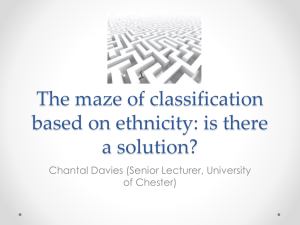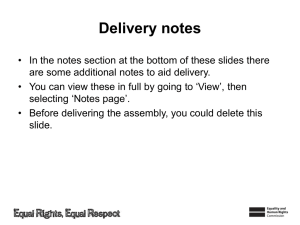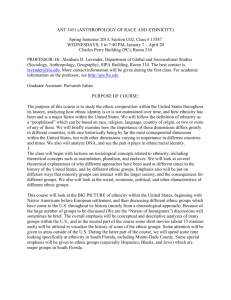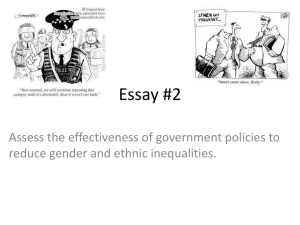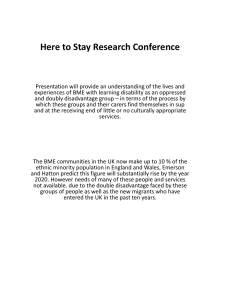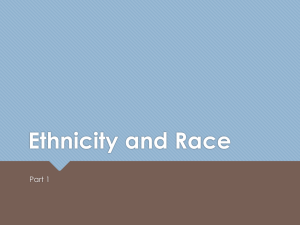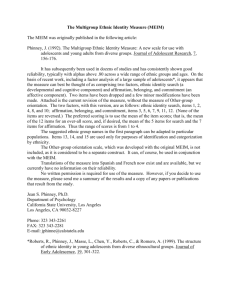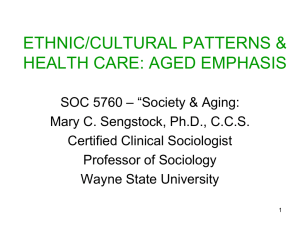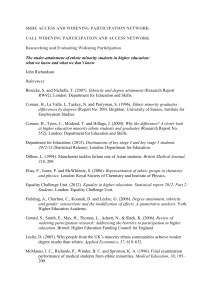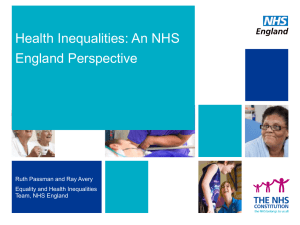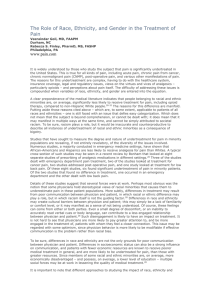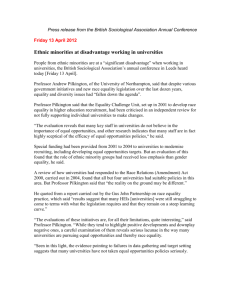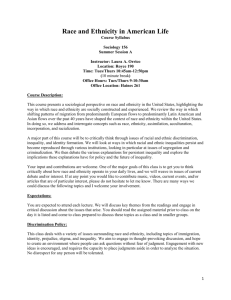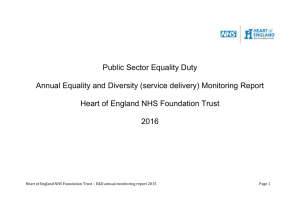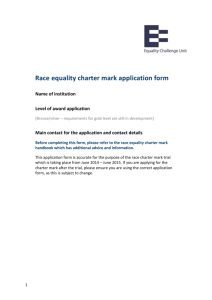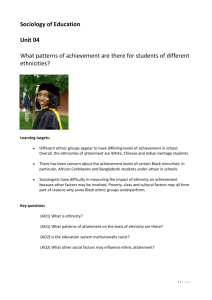A powerpoint template
advertisement
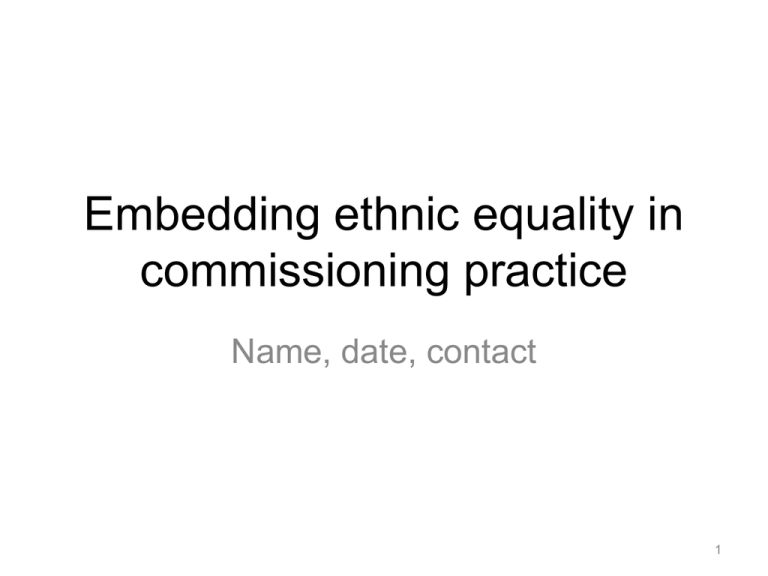
Embedding ethnic equality in commissioning practice Name, date, contact 1 What is ethnicity? • Common physical and cultural characteristics, shared values and history • Affects health and healthcare via several routes: - structural (exclusion; poor access to resources) - cultural (risks; responses; healthcare experiences) - biological/genetic factors • Fluid and dynamic, complex identities, variation within and between ethnic 'groups' (age, gender, generation, class, religion), BUT important axis of difference and disadvantage Local ethnic profile 3 What is the issue? • We live in a multi-ethnic society; ethnic diversity is increasing; by 2020 1/4 local popn will be minority ethnic • Ethnic identity impacts on health through varied routes • Health services should mitigate wider disadvantage, but can make things worse • Inequalities in access, experience and outcomes 4 Why does this matter? • Commissioning has key role in addressing unmet need and driving up standards of care. BUT, to-date, impact on inequality very limited. • Legal duty to proactively identify and reduce inequalities (2010 Equality Act) • Morally right thing to do • Equity is core to the NHS constitution • Closely linked to other key commissioning drivers: ► Quality ► Efficiency ► Health Inequalities • YET, remains a side-lined concern with limited resource and expertise 5 "Equality must be at the heart of the NHS. each of us has a responsibility to ensure that care is high quality, personal and fair" Sir David Nicholson, Chief Executive of the NHS "A better NHS that: is genuinely centred on patients and carers; achieves quality and outcomes that are among the best in the world; refuses to tolerate unsafe and substandard care; eliminates discrimination and reduces inequalities in care" Equity and Excellence, White Paper (Our vision for the NHS) 6 Local examples : service access Observed vs. expected revascularisation rate Procedure rate per 100,000 M+F population 350 300 Male Female 250 200 150 100 50 0 Gen pop observed rate S Asian observed rate S Asian expected rate 7 Local examples : service experience “The GP will give more time to White patients but not to people from Somalia and Bangladesh. He treats them like shit”. Local service user "Never contact the doctors at the hospital by phone, always in writing..You can't trust them. It is the way the professionals talk to you or deal with you because they don't understand our culture and our norms." Local carer 8 Local examples : health outcomes 9 Local examples: inefficiencies 10 Local examples: a marginalised concern "There’s a mind-set that says if we do anything for BME communities that’s on top of what we already do, rather than what we already do should incorporate the needs of BME communities" (Local commissioning manager) Annual Quality Report, 2010/11, references to equality, ethnicity, or ethnic inequality = 0 CQUINS with ethnicity focus/breakdown = 1/47 11 What should healthcare commissioners do? • Ensure that existing services and interventions provide equitable access, experiences and outcomes for all service users and carers regardless of ethnicity. • Ensure that any transformational work pays detailed attention to the potential negative impact on particular ethnic groups. • Examine the fit between existing services and minority ethnic health needs and respond to significant gaps. • Shift spend towards prevention and early intervention. 12 What are we already doing? • ... TBC .... 13 What more could we be doing? • Mainstreamed attention across all our work. • Using Quality resources and infra-structure to tackle ethnic inequality. • Investing in a BME user forum that gives meaningful and consistent input to the commissioning process e.g. Westminster • ...... TBC ............... 14 What would be the benefits? • • • • • • Legal compliance More efficient use of resource Progress towards key targets Reduced risk of serious incidents Reduced risk of challenge from local communities More flexible and responsive services • Better health for all! 15 Some key questions to consider What factors obstruct such mainstreaming? Who is responsible for leading on this agenda? What role should other people be playing? What resources/strengths can we build on? What are we going to do next? 16


